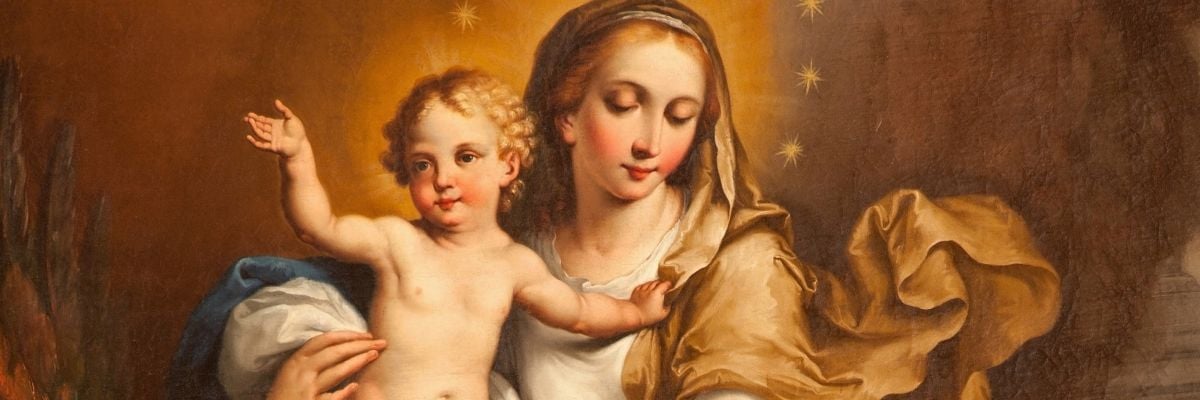
Question:
Answer:
First, we don’t know for sure if Mary made her vow of virginity before she became married to Joseph. Recall that Mary was already married (“betrothed”—Luke 1:27) to Joseph when she says to the angel Gabriel in Luke 1:34: “How shall this be done, because I know not man” (Douay-Rheims). It’s possible that Mary took her vow of virginity after she and Joseph were legally married.
Such a situation would not have been unknown among first-century Jews. In Numbers 30 we find instructions given for a woman still living in her father’s house (v. 3-5), a married woman (v. 6-8), and a widowed or divorced woman (v. 13) concerning her oath to “afflict herself.” According to Torah scholar Jacob Milgrom, this is an idiom among ancient Jews that refers to fasting and refraining from sexual intercourse (see Milgrom, Harper Collins Study Bible n. Lev 16:29; citing Targum Pseudo-Jonthan; cf. also Exod. 19:15). And as the context bears out, in the case of the married woman her vow remained if the husband did not object.
So, if Mary had made such a vow after their betrothal, and Joseph didn’t object, then the instructions in Numbers 30 would provide a historical basis for such a situation. And even if Mary made the vow before betrothal, I think the instructions would still provide a historical context that would make her vow intelligible.
Finally, even if one doesn’t accept the above rationale, we can at least say that it’s not that much of a “leap of faith” to accept Mary’s perpetual virginity as a married woman given the unique situation of conceiving and bearing the Son of God as a virgin.
For more information on this topic, see Tim Staples’s Behold Your Mother: A Biblical and Historical Defense of the Marian Doctrines.



